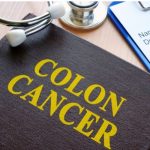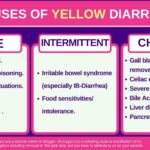Coffee Ground Stool: Causes & How it Looks.
Our content is not intended nor recommended as a substitute for medical advice by your doctor. Use for informational purposes only.
What is a coffee ground stool?
As practicing gastroenterologists, we don’t use a medical term called “coffee ground stools”.
Coffee-ground is only used in medicine to describe stomach bleeding (coffee ground vomitus or gastric wash).
So, your definition of “coffee ground stool” might be different from mine.
Coffee ground is the remnants of coffee beans in a pot or coffee maker. They appear dark brown or blackish. The consistency is usually loose.
The cause of coffee ground stools can be in the form of black spots (speckles) in the stool, or the whole stool becomes dark and mushy.
We use a more organized stool classification system called the “Bristol stool scale”. A coffee ground stool can be any type of bristol stool scale provided that it is darker or blackish in color.

So, a coffee ground stool may refer to:
- Black mussy stools or black liquid stools (type 6 and 7).
- Black speckles (spots) in the stool.
- Very dark brown stool.
- Or colored stool spots that form a mosaic appearance with the normal brown color.
Causes of coffee ground stools.
1- Dark-colored foods.
Dark-colored stool with no symptoms may indicate a normally discolored stood by food. Dark foods are the most common cause of coffee ground stools.
The most common foods that can potentially cause coffee ground stools are:
1- Black colored foods and fruits:
- Blueberries.
- Blackberries.
- Plums.
- Black beans.
- Figs.
- Cherries.
- Spices such as black pepper.
- Bananas.
- Dark puddings
2- Iron-containing foods
- Red meat,
- Spinach,
- beets,
- kidney beans,
- Molasses,
- And oysters.
3- Artificial coloring
- Black licorice.
- Chocolate puddings.
4- Green leafy vegetables: once digested, they turn into dark greenish-brown or black.
5- Tomatoes, and tomato products.
6- Raw or undercooked meat: it contains high amounts of iron.
2- Dark-colored medications.
Some medications can alter the color of your stool. Coffee ground stools can result from:
- Iron supplements: Taking iron as a part of multivitamins or as a treatment of iron deficiency anemia is a common cause of dark or coffee ground stools.
- Bismus Subsalicylates (Pepto-Bismol): It is a medication used to treat gastritis and diarrhea.
3- Bleeding into your esophagus, stomach, or duodenum.
Bleeding is the most dangerous and the most important cause of dark or coffee ground stool.
Bleeding into the upper part of your digestive tract (esophagus, stomach, and duodenum) commonly causes black stools (melena). (reference)
Bleeding from the small intestine or colon can cause dark red blood or black spots in stools (commonly called coffee ground stools.
The coffee ground stools due to gastrointestinal bleeding can be due to:
- Ulcers of the stomach or duodenum: it is the most common cause of bleeding inside your gut. Usually, you would be suffering from symptoms of gastritis (such as epigastric pain and vomiting (which can be bloody)).
- Varices of the esophagus or stomach: dilated veins in the wall of the stomach or esophagus (usually in patients with liver failure due to liver cirrhosis). The symptoms of liver disease, such as swollen lower limbs, ascites, and jaundice, are often present.
- Vascular malformations (abnormal blood vessels at any part of your digestive tract): The malformed blood vessels can rupture and bleed inside your digestive tract.
- Bleeding from tumors (such as polyps) or cancers (such as stomach cancer or colorectal cancer): The condition is usually accompanied by symptoms suggestive of malignancy such as abdominal pain, change in bowel habits, weight loss, …etc. Learn more.
- Other causes of bleeding: Other less common causes of bleeding includes diverticulosis, Mallory-Weiss syndrome, Inflammatory bowel disease, and blood diseases.
They can cause coffee-ground stool or black tarry stools.
The differences between normal dark (coffee ground) stools and melena due to bleeding are summarized in the table below.
| STOOL | MELENA (BLEEDING). | OTHER CAUSES |
| COLOR | Tarry or Jet black (black coffee ground) | Brown, green, or dark brown coffee-ground stools. |
| SMELL | Characteristic foul smells (acidic and irony smell) | usually no unique changes from your normal stool smell. |
| CONSISTENCY | Usually loose (Tar-like consistency) and sticky. | well-formed, non-sticky |
| FLUSHING | Difficult to flush it away. | Easy to flush |
| COURSE | Sudden onset, rapid deterioration. | Usually, the condition is intermittent discoloration of stool (related to foods or drugs) over days or even months. |
| SYMPTOMS OF THE CAUSE | Epigastric pain (peptic ulcer), vomiting of blood (esophageal varices). weight loss (gastric cancer, colon cancer) is usually present | History of taking block foods, iron supplements, or Pepto-Bismol. |
| SYMPTOMS OF BLEEDING | Usually present: ►Dizziness, fainting, shortness of breath. ►Fast heartbeats. ►Pale, cool, clammy skin. ►Collapse and loss of consciousness in severe cases. | Absent. |
Consult your doctor immediately if you think your black stools are due to bleeding.
Possible causes of coffee ground stools according to the color?
1- Black coffee ground stools
The “TRUE BLACK” coffee-ground stool should raise your attention about possible bleeding inside your gut. Both completely black stools (melena) and black spots in the stool (coffee ground appearance) can be a sign of bleeding.
The most common cause is peptic ulcer disease. Black coffee-ground stools (especially if they have a characteristic smell and have loose consistency) require medical evaluation by your doctor.
2- Dark (very dark brown) stools.
3- brown (normal colored but mushy) coffee ground stools.
Very dark brown stools are usually due to dark-colored foods or medications. If you have no other symptoms (such as abdominal pain or vomiting), then there is no need to worry.
But seek advice if you have recent-onset symptoms such as abdominal pain, diarrhea, vomiting, fainting, shortness of breath, or fever.
4- Light brown or yellow coffee ground stools.
Light brown or yellow coffee ground stools are usually due to ingestion of yellow foods. Most commonly fatty meals, alcoholo, carrots, sweet potatoes, turmeric, and yellow food coloring.
Also, some medications, such as laxative overdose, gastritis medications (such as Prilosec), and some antibiotics can lead to yellow coffee-ground stools.
Rarely, some diseases such as bile obstruction and inflammation of the liver (hepatitis) can lead to yellow coffee-ground stool. Learn More.
5- Dark green coffee ground stools.
The dark green coffee ground stool is often due to the ingestion of large amounts of green leafy vegetables. No need to be concerned unless there is diarrhea or other symptoms such as severe abdominal pain, vomiting, or fever.
A review of your foods eaten before the onset of the coffee-ground stool is essential to determine that cause. In more than 90% of cases, it is usually benign changes due o foods or medications.
When should you see a doctor?
- “Black coffee ground stools” are usually a sign of bleeding that requires urgent medical evaluation by your doctor.
- Symptoms of peptic ulcer disease such as severe epigastric pain, nausea, vomiting, history of taking non-steroidal anti-inflammatory drugs such as ibuprofen and diclofenac.
- Symptoms of low blood pressure (shock) such as dizziness, shortness of breath, fainting, and rapid heartbeat. When these symptoms develop abruptly with the onset of black coffee ground stool, it indicates significant bleeding.
- Signs of chronic anemia such as easy fatigue, dyspnea on exertion, fast heartbeats, pallor, and headaches.
- Signs of cancer such as weight loss, change in bowel habits, reddish bloody spots in stool, and abnormally severe abdominal pain. This is especially important if you have risk factors such as being older than 40 and having a family history of colorectal cancer.
- If you experience coffee ground stools after taking non-steroidal anti-inflammatory drugs like ibuprofen (Advil), and Diclofenac. Also, if you are taking blood-thinning medications such as warfarin (Coumadin), Enoxaparin, Dabigatran, Apixaban… etc. Learn more
MORE:
- Evidence-based
- Written by a doctor.






